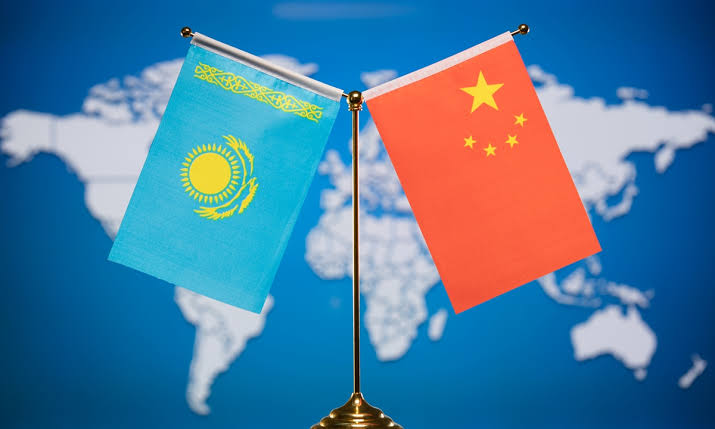China Kazakhstan Economic Cooperation

The strategic alliance between China and Kazakhstan has profoundly influenced the geopolitical dynamics of Central Asia. As two of the region’s most prominent nations, their cooperation spans economic, political, and security spheres, significantly influencing regional stability and development. This article explores the wide-ranging effects of China-Kazakhstan relations on Central Asian geopolitics.
China and Kazakhstan have a longstanding history of interaction, shaped by ancient trade routes like the Silk Road. After Kazakhstan gained independence from the Soviet Union in 1991, the two nations swiftly established diplomatic relations and began forging a comprehensive partnership. The launch of China’s Belt and Road Initiative (BRI) in 2013 further strengthened this relationship, positioning Kazakhstan as a key transit point linking East and West.
Economic Collaboration: The Foundation of the Partnership
Belt and Road Initiative
Kazakhstan’s geographical position makes it crucial to China’s BRI. The initiative seeks to enhance global trade and infrastructure connectivity, with Kazakhstan serving as a vital link between China and Europe. Significant projects such as the Khorgos Gateway and the Western Europe-Western China highway have increased trade and transit capacity, facilitating the movement of goods across the region.
Energy cooperation is a fundamental aspect of China-Kazakhstan relations. Kazakhstan’s abundance of oil and gas resources has attracted considerable Chinese investment in its energy sector. The China-Kazakhstan oil pipeline, operational since 2006, and the Central Asia-China gas pipeline are essential channels for energy exports to China. This partnership not only boosts Kazakhstan’s economy but also secures China’s energy needs.
China’s investments in Kazakhstan extend beyond energy to sectors like mining, agriculture, and manufacturing. Industrial initiatives, including joint ventures and special economic zones, aim to diversify Kazakhstan’s economy and reduce its reliance on raw material exports. These investments have generated employment and facilitated technological transfers, contributing to Kazakhstan’s economic modernization.
The political relationship between China and Kazakhstan is marked by mutual respect and strategic alignment. High-level visits and bilateral agreements highlight their commitment to deepening cooperation. The establishment of the China-Kazakhstan Production Capacity Cooperation Fund exemplifies efforts to finance joint projects and enhance industrial collaboration.
China and Kazakhstan share a common interest in maintaining regional stability and combating security threats like terrorism, separatism, and extremism. Both countries are active members of the Shanghai Cooperation Organization (SCO), which focuses on regional security and economic cooperation. Joint military exercises and intelligence sharing have strengthened their security partnership, contributing to a more stable Central Asia.
The China-Kazakhstan relationship also affects the geopolitical dynamics involving other major powers in the region. Russia, traditionally a dominant player in Central Asia, views China’s growing influence with a mix of cooperation and competition. The United States and the European Union are also keenly observing the evolving dynamics, as they seek to expand their presence in the region through economic and security initiatives.
People-to-people exchanges between China and Kazakhstan have flourished, fostering mutual understanding and cultural appreciation. Educational collaborations, including scholarships and academic partnerships, enable Kazakh students to study in China and vice versa. Cultural events, such as festivals and exhibitions, promote cross-cultural dialogue and strengthen societal bonds.
The spread of Chinese language and media in Kazakhstan highlights China’s soft power strategy. Confucius Institutes in major Kazakh cities offer language courses and cultural programs, enhancing China’s cultural presence. Additionally, Chinese media outlets provide news and entertainment content, shaping public perceptions and fostering a positive image of China.
Future Prospects
The future of China-Kazakhstan relations lies in enhancing economic connectivity and deepening cooperation across various sectors. Continued investments in infrastructure, energy, and technology will be crucial for sustaining economic growth and development. Both countries are likely to explore new avenues for collaboration, such as renewable energy, digital economy, and green technologies.
China and Kazakhstan are expected to play pivotal roles in advancing regional integration initiatives in Central Asia. Collaborative projects involving neighboring countries can enhance regional connectivity and economic interdependence. The success of the BRI and other regional initiatives will depend on the ability to foster inclusive and sustainable development.
Navigating the geopolitical complexities of Central Asia will be a key challenge for China and Kazakhstan. Diplomatic efforts will be needed to manage competing interests and maintain a balance of power in the region. Strengthening multilateral frameworks, such as the SCO and the Eurasian Economic Union, can provide platforms for dialogue and cooperation.
Conclusion
The China-Kazakhstan alliance is a cornerstone of Central Asian geopolitics, shaping the region’s economic, political, and security landscape. Their partnership has brought significant benefits, from enhanced trade and investment to improved regional stability. As China and Kazakhstan continue to deepen their cooperation, their relationship will remain a critical factor in the future of Central Asia, influencing its development and integration in the global order.


